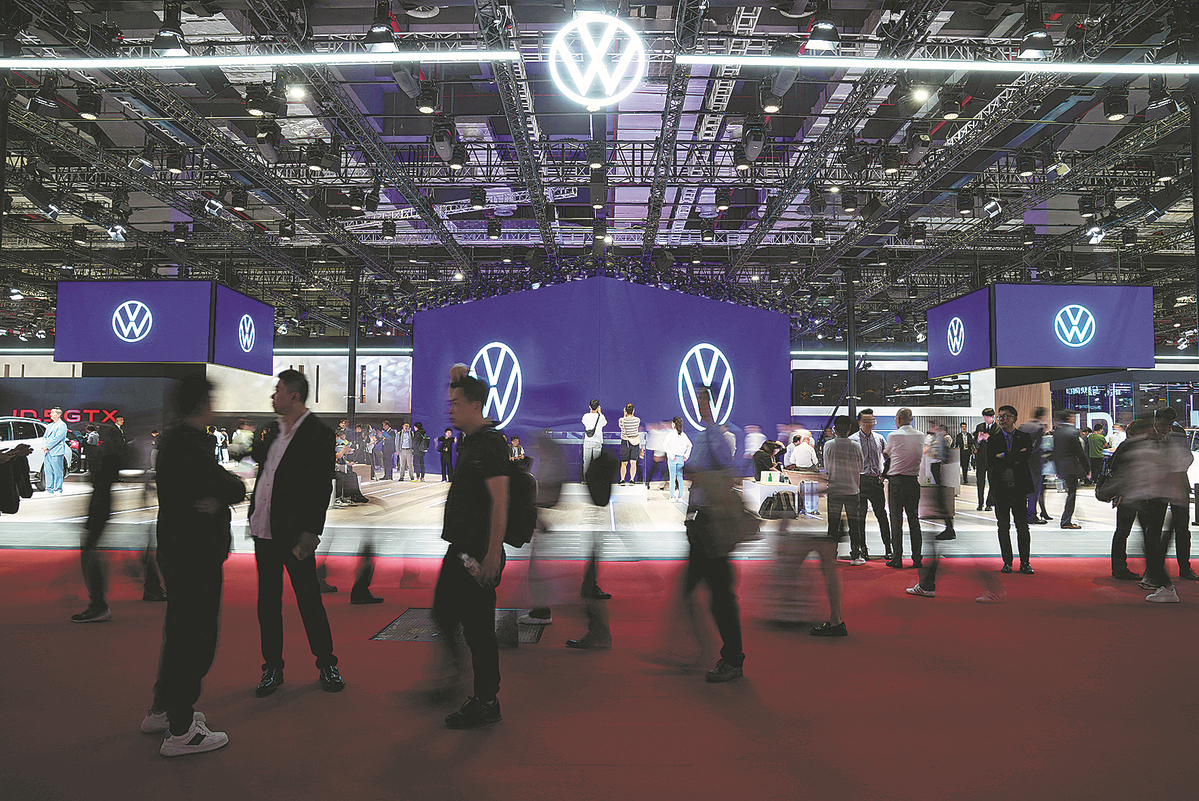Hefei set to emerge as China's Wolfsburg for VW's EV ambitions


Each year, millions of Volkswagen vehicles are produced and sold around the globe but all of them trace their origin back to the German carmaker's headquarters in Wolfsburg, where they are transformed from ideas into reality.
With the advent of the e-mobility era, Hefei in East China's Anhui province, a city that rarely rings a bell among foreigners, is emerging as a promising testing ground that may power the car giant's EV ambitions in China and even around the world.
Volkswagen is the earliest extant international carmaker in China. It teamed up with SAIC in 1984 and joined hands with FAW in 1991 and has been the best-selling carmaker in the country.
With new energy vehicles gaining popularity, however, the largest European carmaker has been losing its ground to local Chinese marques including BYD as well as startups such as Xpeng.
Volkswagen has electric models, which were developed in Germany, but they are ridiculed as old-fashioned and lacking imagination by the Chinese market.
Not wanting to lose its appeal in the country, which accounts for roughly 40 percent of its sales and profits, the carmaker made the tough decision to change the way it had long been accustomed to, with the cost being money and, more importantly, autonomy.
Ralf Brandstaetter, chairman and CEO of Volkswagen Group China, said the carmaker used to develop cars in Europe and brought them into China, sometimes with adjustments.
But the approach no longer works when it comes to EVs, because car buyers in the country are young and tech-savvy and local rivals are coming up with products that are completely new.
Hefei, around two hours away from Shanghai by train, was chosen as the site to test its fate-changing reform.
Over the past years, Volkswagen has built in the city a state-of-the-art hub that involves production, development and innovation, which is staffed with employees from China and European countries including Germany and Spain.
At the heart of the hub is Volkswagen China Technology Company, which focuses on intelligent, fully connected vehicles. With an investment of 1 billion euros ($1.09 billion), it is the carmaker's largest development center outside Germany.
Marcus Hafkemeyer, chief technology officer of Volkswagen Group China, said the facility is fully capable of developing brand-new models from scratch, involving design, test, validation and approval.
Now, around 1,200 technical staff are working at the facility, and the figure is expected to rise to 3,000 by the end of 2024.
Volkswagen said their work is focused on three clear goals: high development speed, great cost efficiency, while at the same time strengthening the carmaker's standards of quality and safety.
It is developing an EV platform specifically for the Chinese market, based on its global MEB platform, to meet the wishes of Chinese customers, and the first model is scheduled to roll out in 2026.
"We will bring the platform to market maturity in just 36 months. This means that we are reducing the development time by around a third and can quickly tap into new customer groups in the dynamic e-car market in China," said Brandstaetter.
One ingredient in the new recipe is more involvement of local suppliers. Volkswagen said around 1,100 Chinese suppliers are involved, and the localization rate is to be gradually increased up to 100 percent.
Hafkemeyer bills it as Volkswagen's second wave of localization in the country.
He explained that in the first wave, the company purchased components from international suppliers' plants in China, which nevertheless required going back and forth with the headquarters in Germany.
But now, it sources components from local Chinese companies and involves them in the early stages of development, which further cuts time and creates better integration, said Hafkemeyer.
Further synergies are realized through the close networking of development work with the joint ventures SAIC Volkswagen, FAW-Volkswagen, and Volkswagen Anhui as well as with Gotion, a battery maker in which Volkswagen has a 26 percent stake, and the Chinese EV startup Xpeng.
In terms of autonomous driving and user experience, Volkswagen's software unit Cariad is working with Horizon Robotics, ARK and Thundersoft in the country to offer solutions that are comparable to Chinese rivals.
"They will be highly competitive," said Brandstaetter, when asked about the competitive edge of the vehicles that are scheduled to roll out from 2026 on its China-specific EV platform.
"We have set our target to remain the No 1 international carmaker in China … and a top three player in the country by 2030," he said.
But it won't take that long for Hefei to show its prowess. In late November, Volkswagen's first wholly-owned battery plant started operation in the city, with its batteries to equip models at Volkswagen Anhui, the first Chinese joint venture in which the German carmaker has a major stake.
Volkswagen Anhui's plant, with an annual capacity of 350,000 units, was built in a record 18 months. The first model to come out is the electric Cupra Tavascan, which will be exported back to Europe from later this year.
"We are systematically developing Hefei into the Volkswagen Group's innovation hub in China. And we are stepping up the pace," said Volkswagen Anhui CEO Erwin Gabardi, who has put the province Anhui into his Chinese name.



































